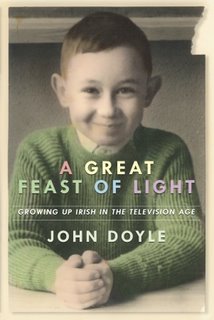
At the moment, my tattoo has a seven-year history from its inception on a cold, February day to its recent symbolism at the end of a failed relationship. It has been admired and reviled, displayed proudly and concealed stealthily. What many may see as a fad or a trend has actually shaped my life more than one would expect.
It all started around the age of eighteen when my friends and I started discussing how cool it would be to get a tattoo. We talked about what we’d get (first I wanted a rose, then a Maple Leaf, then a Celtic cross), where we’d get it (on the ankle or breast, then on the shoulder blade) and who would do it (we actually paid a visit to the only female tattoo artist in Toronto one August afternoon). In the five years between being eighteen and my last year of university, my requirements changed and I finally decided on the Chinese symbol of the Year of the Tiger – the year I was born in, as well as, coincidently, the year I got the tattoo – to be inked on my lower back. But this was all just an idea in my head until one February day when I was on my way home after classes.
I was walking by a tattoo parlour in downtown Hamilton and decided to walk in just to check out prices. The large, bearded man in a leather vest and jeans quoted me a price for the tattooing ($80) and for drawing up an original design ($15). He then told me to bring the picture of the symbol in and he would get going on the design. And just like that, I had entered into the world of the tattooed.
The next day, I came back with the picture, which was in the Chinese Zodiac section of a book entitled Encyclopedia of Prediction. I have since asked several people fluent in Mandarin and Cantonese to decipher my tattoo, and none of them have recognized the symbol that adorns my back. However, the Year of the Tiger is what the symbol means to me, so I tend to leave out the scriptural technicalities when answering questions about the meaning of my design.
I returned to the tattoo shop the following day and the woman at the front showed me the drawing of my tattoo. It seemed larger than I had expected, but at this point, I had put myself into the hands of the tattoo parlour staff. She told me that if I waited five minutes, the bearded gentleman in the leather vest and jeans would be able to ink me next. I had originally intended my foray into the shop as merely a fact-finding mission, and now it was turning into an actual event. I stayed on the wave and took a seat.
The process took less than an hour and at its worst, felt like a cat scratching my back. I had it done on my lower back, off to the left, in a patch of fatty tissue, which I’m told hurts less than on muscle or bone. Other people I’ve spoken to who have tattoos have told me horror stories about the pain, but it tends to be men with these tales of agony – perhaps because men tend to get tattoos on their bony shoulders or muscular arms, or maybe their pain threshold is just lower.
When my artist was finished, he directed me to a mirror across the room where I was able to see the final product – my blackened skin sprouting beads of blood, surrounded by a patch of redness on the encircling pale skin. “Looks good,” I said, returning to have its picture taken and then a patch placed over it.
For the next week, I couldn’t get the tattoo wet and had to replace the dressing daily, rubbing in Polysporin, for fear of infection. After a week, I was able to unveil it to the world, but more importantly, wash it. As I did, black scabby bits of ink and skin flaked off in the shower. I dutifully moisturized, as advised by the woman at the tattoo shop, and soon, my design was completely healed and ready to be displayed.
I haven’t, however, displayed my tattoo that often. Part of the reason I got it done where I did was because of its unassuming area. The only time it is viewed publicly, is when I’m in a bikini. Only those who know me well will see it in any other scenario. I don’t see my tattoo as a fashion accessory, but as a part of my personality.
It was this part of my personality that proved to be too much for one boyfriend. He claimed, at the end of it all, that he couldn’t marry someone with a tattoo. He didn’t want the mother of his children to have to explain to them why she had a tattoo – he saw them as cheap and classless. He claimed that he was not judging me, it was everyone else that would be judging me, and he didn’t want to have to deal with it.
Now despite the ridiculousness of his thinking, I still loved him greatly at the time, and to break up over a tattoo seemed silly. And maybe there were all sorts of other things about me and the relationship he was not willing to discuss, instead finding it simpler to focus on one aspect of me that was disagreeable. He tried to rationalize my decision, I considered having it removed (a lengthy and expensive process I have discovered – it took $95 and less than an hour to have it done, it would take several thousand dollars and 5-10 hour-long sessions to have it removed). At the end of the day, the issue came down to him not being satisfied with a symbol that meant so much more. We parted ways. I see it now as a symbol of the victory of personality over aesthetics. I could have had it removed for him, but that would mean fundamentally changing something about me for someone else – he should have been in love with all of me, faults, mistakes and everything.
So, my tattoo has served many functions: act of rebellion, conversation piece, artistic expression, and now, bad boyfriend radar.

 John Doyle’s new book, A Great Feast of Light: Growing Up Irish in the Television Age chronicles his childhood in Ireland. Although Doyle, a television critic for the Globe and Mail, chooses the arrival of television and Ireland’s negotiation of it as his central theme, the Troubles serve as a stark backdrop to the newly discovered “feast of light”. Instead of hearing of the Catholic marches and protests on the wireless, the Doyle family was able to watch events unfold before their eyes, linking them to their fellow countrymen. Not only were they linked to the protests, but to the clashes with police and the British army, and to the bombings that plagued Ireland during the Troubles. And it was television that informed Doyle about the bombings in Dublin that happened as he was on the train (or bus - I can't remember and I've lent the book to someone else). Much of Doyle’s book is taken up with his descriptions of going to school, but then rushing home to catch such programs as I Love Lucy; the Donna Reed Show; Upstairs, Downstairs; the Late Late Show and various American Westerns. His discovery of Monty Python is another pivotal moment in the book. However, Ireland’s post-war history is an ever-present foil to the glitzy and fictitious world of television.
John Doyle’s new book, A Great Feast of Light: Growing Up Irish in the Television Age chronicles his childhood in Ireland. Although Doyle, a television critic for the Globe and Mail, chooses the arrival of television and Ireland’s negotiation of it as his central theme, the Troubles serve as a stark backdrop to the newly discovered “feast of light”. Instead of hearing of the Catholic marches and protests on the wireless, the Doyle family was able to watch events unfold before their eyes, linking them to their fellow countrymen. Not only were they linked to the protests, but to the clashes with police and the British army, and to the bombings that plagued Ireland during the Troubles. And it was television that informed Doyle about the bombings in Dublin that happened as he was on the train (or bus - I can't remember and I've lent the book to someone else). Much of Doyle’s book is taken up with his descriptions of going to school, but then rushing home to catch such programs as I Love Lucy; the Donna Reed Show; Upstairs, Downstairs; the Late Late Show and various American Westerns. His discovery of Monty Python is another pivotal moment in the book. However, Ireland’s post-war history is an ever-present foil to the glitzy and fictitious world of television. Breakfast on Pluto, originally a book by Patrick McCabe and now a film directed by Neil Jordan (The Crying Game) is another recent example of a personal story being told against the backdrop of the Troubles. Patrick “Kitten” Braden (played by Cillian Murphy) is a transgender boy living in a town “just over the border” (I assumed it was in the north, but my mother pointed out that the Garda – the Republic of Ireland police – came to the rescue during a bomb scene, although why the south was being bombed is another question). Throughout the movie, Kitten’s exploration of his sexuality and search for his mother are framed by the unfolding violence in Britain and Northern Ireland.
Breakfast on Pluto, originally a book by Patrick McCabe and now a film directed by Neil Jordan (The Crying Game) is another recent example of a personal story being told against the backdrop of the Troubles. Patrick “Kitten” Braden (played by Cillian Murphy) is a transgender boy living in a town “just over the border” (I assumed it was in the north, but my mother pointed out that the Garda – the Republic of Ireland police – came to the rescue during a bomb scene, although why the south was being bombed is another question). Throughout the movie, Kitten’s exploration of his sexuality and search for his mother are framed by the unfolding violence in Britain and Northern Ireland.  He forms a relationship with an IRA gun-running rocker and watches his childhood friend Irwin build ties with the Republican Army. He is later accused of bombing a London nightclub, based solely on his accent and dress habits.
He forms a relationship with an IRA gun-running rocker and watches his childhood friend Irwin build ties with the Republican Army. He is later accused of bombing a London nightclub, based solely on his accent and dress habits. PS. Here’s a picture of my friend’s dog – isn’t she so cute?!?!
PS. Here’s a picture of my friend’s dog – isn’t she so cute?!?!









